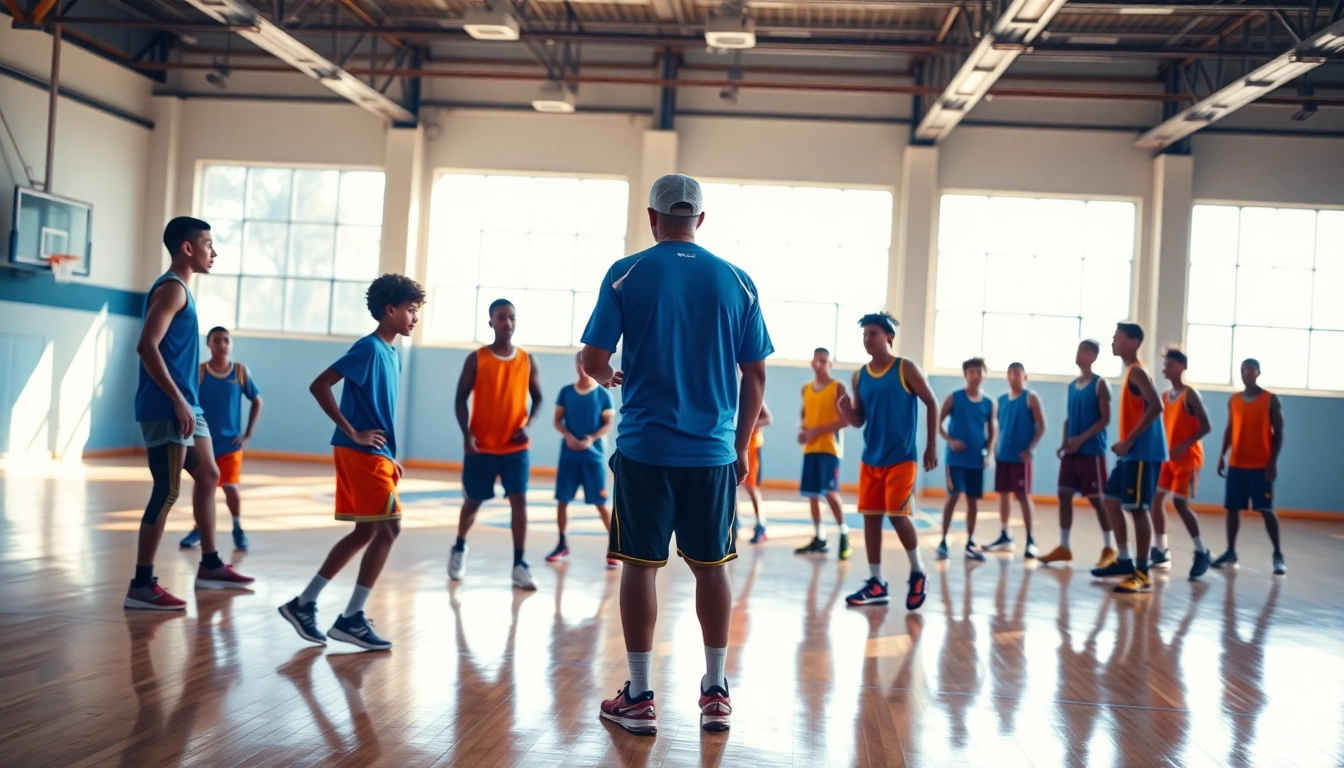Understanding Basketball Training Programs
What Are Basketball Training Programs?
Basketball training programs are structured guidelines designed to improve players’ skills, techniques, and overall performance on the court. They can range from grassroots initiatives for beginners to advanced skills training for competitive athletes. The goal is to develop a player’s shooting, ball handling, defense, and understanding of game tactics. These programs often integrate physical conditioning and mental preparedness, ensuring that players are well-equipped to meet the demands of the game.
Benefits of Participating in Training
Engaging in a basketball training program comes with numerous benefits:
- Skill Improvement: Training focuses on enhancing specific skills like shooting accuracy, dribbling, and defensive techniques.
- Physical Conditioning: Programs often incorporate fitness training that increases endurance, agility, and strength, essential for optimal performance on the court.
- Mental Toughness: Players learn to develop a strong mindset, resilience, and game strategy, which are crucial during high-pressure situations.
- Social Engagement: Training provides opportunities for players to connect with peers, fostering teamwork and sportsmanship.
Targeting Your Skill Level
One significant advantage of basketball training programs is their ability to cater to different skill levels. Whether you’re a novice or an advanced player, programs typically offer personalized training sessions or group activities that focus on individual player needs. Understanding your current skill level allows you to choose the right program for maximum development.
Evaluating Training Program Options
Online vs. In-Person Training
Choosing between online and in-person training programs is a pivotal decision for aspiring basketball players. In-person training offers immediate feedback from coaches and a structured environment for physical practice. Meanwhile, online training provides flexibility, allowing players to practice on their own time. Many reputable online platforms offer comprehensive best basketball training programs that include video tutorials, drills, and tips from experienced coaches.
Assessing Program Quality and Credentials
When evaluating basketball training programs, it’s crucial to consider the qualifications of the instructors and the quality of the program structure. Look for programs led by certified coaches or trainers with proven track records in player development. Testimonials and success stories from previous participants can also provide insights into the effectiveness of a program.
Cost Considerations for Training
Budget is a key factor when selecting a basketball training program. Prices can range widely based on the program’s duration, location, and the proficiency of the instructors. Comparing different programs and understanding what each costs in terms of delivered value can help you make an informed decision that aligns with your financial situation.
Key Elements of Effective Basketball Training
Fundamental Skills Development
Effective basketball training must emphasize fundamental skills. This includes shooting, passing, ball handling, and defense. Coaches often focus on breaking down each skill into its components and using drills that reinforce these basics. Regular practice of fundamentals helps create a solid foundation, making it easier for players to adapt to more complex strategies as they advance.
Physical Conditioning Techniques
Basketball requires players to have high levels of endurance, strength, and agility. Effective training programs include conditioning activities like sprinting, plyometrics, and resistance training. These activities help prevent injuries and improve overall athletic performance. Specialized exercises targeting legs, core strength, and cardiovascular endurance form integral parts of a comprehensive training regimen.
Mental Toughness and Game Strategy
In addition to physical skills, mental toughness plays a critical role in a player’s success. Training programs should incorporate strategies that enhance focus, confidence, and resilience under pressure. Techniques such as visualization, meditation, and simulating game-like scenarios can prepare players for the mental challenges of competition.
Choosing the Right Basketball Training Program for You
Personalized Assessment of Needs
To select the most suitable basketball training program, it’s essential to conduct a personalized assessment of your strengths and weaknesses. Consider your goals—whether you aim to start out as a player or elevate your game to a professional level. Programs that offer initial assessments can help tailor a training regimen specific to your needs.
Program Adaptability for Different Ages
Basketball training programs should be adaptable for various age groups and skill levels. Programs designed for younger players often focus on developing foundational skills in a fun and engaging way, whereas those tailored for high school or collegiate athletes tend to emphasize competitive strategies and advanced skills training.
Feedback from Previous Participants
Another important factor in choosing a program is feedback from former participants. Insights from others who have undergone the training can highlight the program’s strengths and weaknesses. Look for reviews on independent platforms or testimonials from past attendees to gauge overall satisfaction and the effectiveness of the program.
Maximizing Results from Training Programs
Setting Achievable Goals
To make the most out of your basketball training program, setting achievable goals is crucial. Define clear, measurable objectives—such as improving shooting percentage or enhancing defensive skills. These goals guide your practice and help track progress over time.
Maintaining Discipline and Commitment
Discipline is vital for maximizing results in any training program. Consistency in attendance, practice routines, and effort levels leads to cumulative improvement. Stay committed by establishing a training schedule and holding yourself accountable.
Measuring Progress and Adjusting Training
Regularly measuring your progress ensures that you remain on track to achieving your goals. Use stats and feedback from coaches to assess how well you are performing. If certain areas aren’t improving, consider adjusting your training methods or seeking additional help on specific skills.



